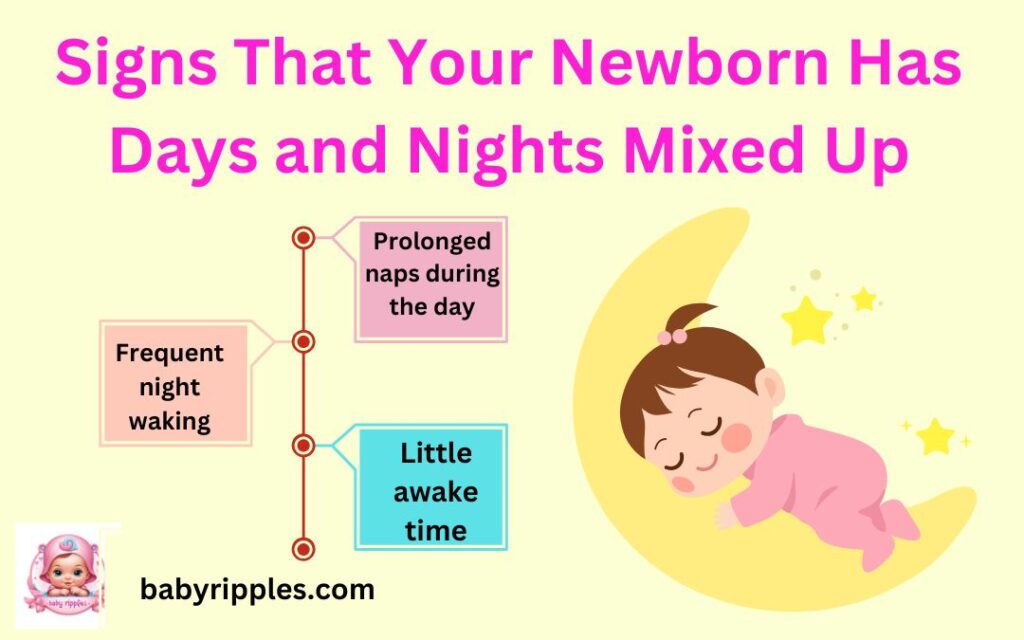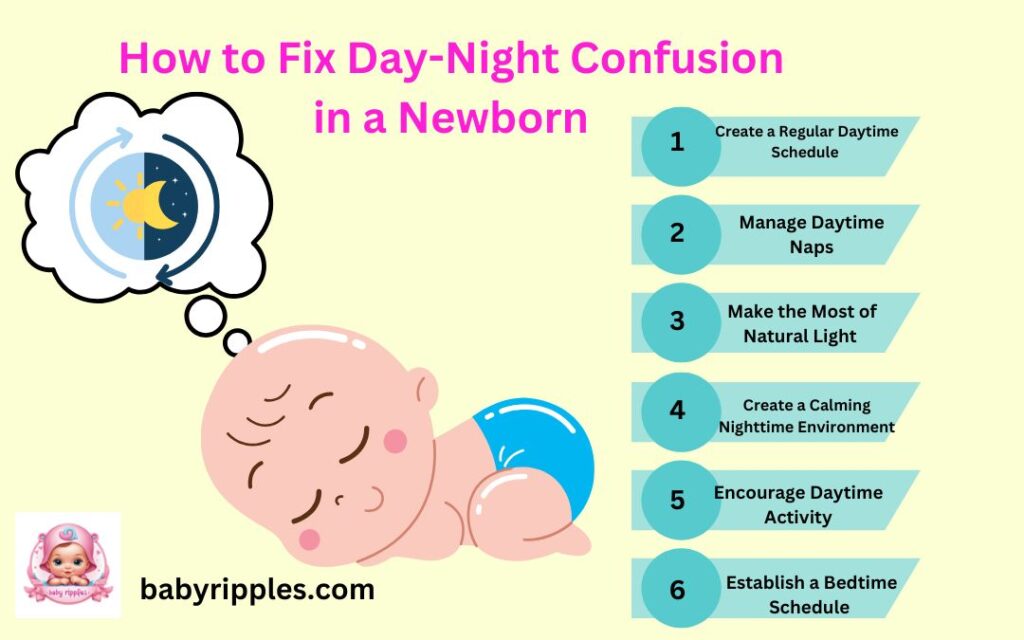Night and day confusion in newborns is a common challenge for many new parents. Adjusting to life outside the womb can disrupt an infant’s sleep patterns, leading to doubt between daytime alertness and nighttime rest. This comprehensive guide will help you understand, manage, and resolve night and day mixed up effectively.
- What is Night and Day Confusion in Newborns?
- The Role of Circadian Rhythms in Infants
- Why Does Night and Day Confusion Occur?
- Signs of Night and Day Confusion in Infants
- How to Correct Night and Day Confusion in Newborns
- How Long Does Night and Day Confusion Last?
- Tips for Parents Managing Night and Day Confusion
- When to Seek Professional Help
- Common Myths About Night and Day Confusion
- Final Thoughts
- Frequently Asked Questions (FAQs)
What is Night and Day Confusion in Newborns?
Night and day confusion refers to a newborn’s tendency to stay awake during the night while sleeping more during the day. This sleep pattern often occurs because, during pregnancy, the baby relies on maternal rhythms and has limited exposure to natural daylight. It is a temporary phase as newborns adapt to life outside the womb.
The Role of Circadian Rhythms in Infants
Circadian rhythms control the sleep-wake cycle and take several weeks to fully develop in newborns. These biological patterns mature gradually and are influenced by light exposure and daily routines.
Why Does Night and Day Confusion Occur?
Several factors contribute to this phenomenon:
- Womb Rhythms: Babies inside the womb are shielded from natural light cycles, leading to mixed signals about day and night.
- Maternal Movement: Movement during the day often lulls the baby to sleep, while nighttime stillness can lead to activity.
- Limited Light Exposure: Newborns may not yet be exposed to sufficient natural sunlight, which helps regulate circadian rhythms.
Signs of Night and Day Confusion in Infants

Recognizing the symptoms early can help parents address the issue promptly:
- Extended sleep durations during daylight hours
- Increased alertness and fussiness at night
- Frequent nighttime waking
- Short, inconsistent naps
How to Correct Night and Day Confusion in Newborns

Addressing this sleep pattern involves gentle strategies and consistency.
1. Encourage Daylight Exposure
Expose your infant to natural sunlight during the day. Sunlight plays a crucial role in regulating circadian rhythms, helping babies distinguish between day and night.
2. Create a Calm Night Environment
Dim the lights in the evening and maintain a quiet, soothing atmosphere during nighttime feeds and diaper changes.
3. Establish a Daytime Routine
Incorporate predictable patterns during the day:
- Regular feeding times
- Engaging play sessions
- Consistent nap periods
- Use natural light to signal wake times
4. Implement a Bedtime Routine
A calming bedtime routine helps signal sleep time:
- Warm bath
- Gentle lullabies
- Reading a short story
- Soft lighting
5. Adjust Feeding Schedules
Try to feed more frequently during the day and keep nighttime feeds calm and quiet.
6. Avoid Overstimulation at Night
Minimize talking, bright lights, and excessive interaction during night feeds and diaper changes.
How Long Does Night and Day Confusion Last?
Night and day confusion typically resolves within a few weeks as infants adjust to external light patterns. However, consistency and patience are crucial.
Tips for Parents Managing Night and Day Confusion
- Practice Patience: Sleep adjustment takes time for both parents and infants.
- Take Shifts: Share nighttime responsibilities with a partner when possible.
- Prioritize Self-Care: Rest when the baby sleeps to avoid exhaustion.
- Use Blackout Curtains: Ensure naps are not too long during the day while keeping the room dark during night sleep.
When to Seek Professional Help
If night and day confusion persists beyond 8-10 weeks or is accompanied by excessive fussiness, poor weight gain, or other concerns, consult a pediatrician for guidance.
Common Myths About Night and Day Confusion
Myth: Babies Should Sleep Through the Night Immediately
Truth: Newborns have irregular sleep cycles and require time to develop consistent patterns.
Myth: Keeping Babies Awake During the Day Prevents Night Waking
Truth: Overtiredness can lead to increased fussiness and difficulty settling at night.
Final Thoughts
Night and day confusion in newborns is a natural phase of early development. By using gentle strategies like sunlight exposure, a consistent routine, and minimizing nighttime stimulation, most infants will gradually adjust. Remember, every baby is unique, and patience plays a key role in this transition.
Frequently Asked Questions (FAQs)
1. How can I help my newborn distinguish between day and night?
Expose your baby to natural light during the day, keep the environment calm at night, and establish consistent routines.
2. How long does it take for night and day confusion to resolve?
Most newborns adjust within a few weeks, though it can take up to two months for some infants.
3. Should I keep my baby awake during the day to fix night and day confusion?
No, keeping a baby awake can lead to overtiredness and worsen sleep patterns.
4. Can night and day confusion affect my baby’s health?
It is a normal part of development and does not affect long-term health if addressed with proper sleep habits.
5. When should I consult a pediatrician about my baby’s sleep patterns?
Seek advice if confusion persists beyond 8-10 weeks or if accompanied by other concerns such as poor weight gain or excessive fussiness.





